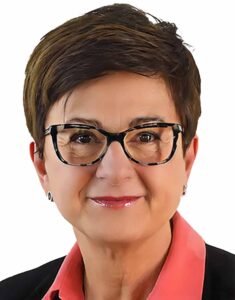
Delegates have gathered in Belém for the second day of the Leaders Summit that opened COP30 with aviation and tourism interests delivering coordinated messages on decarbonisation.
The International Air Transport Association used a side event in the Blue Zone pavilion to restate calls for governments to back the CORSIA carbon offsetting scheme and remove duplicative taxes that slow sustainable aviation fuel production.
The Air Transport Action Group released a fresh briefing on the Waypoint 2050 roadmap showing sustainable aviation fuel must supply sixty-five percent of the net-zero pathway by mid-century.
The Business Aviation Coalition for Sustainable Aviation Fuel launched a book-and-claim portal enabling operators to purchase credits for flights into Belém-Val de Cans airport where physical SAF uplift remains unavailable. More than one hundred coalition members committed to contact fixed-base operators for COP30 missions.
The Sustainable Aviation Buyers Alliance opened its COP30 SAF platform to all twelve thousand registered attendees allowing instant calculation of flight emissions and purchase of certificates that fund new production facilities.
Brazil’s Ministry of Foreign Affairs unveiled the Belém 4x Commitment pledging to quadruple national output of hydrogen, biofuels, biogas and synthetic fuels by 2035 with aviation named as priority user. Tourism interests prepared for the dedicated Thematic Days scheduled 19-20 November under the Energy, Industry and Transport axis. UN Tourism and the Ministry of Tourism of Brazil circulated a draft Tourism Dialogue text reinforcing the Glasgow Declaration signed by over eight hundred operators since COP26.
The dialogue will outline public-private finance mechanisms to cut sector emissions fifteen percent by 2030 with case studies from Amazon eco-lodges that return 2.5 euro per euro invested to local communities.
World Travel and Tourism Council tables showed the sector contributes four percent of global GDP yet faces displacement risks for thirty million jobs unless adaptation finance reaches €180 billion annually. All aviation and tourism pavilions aligned messaging around the Baku to Belém Roadmap that targets €1.2 trillion in annual climate finance by 2035 with explicit carve-outs for SAF refineries and resilient coastal infrastructure.
Side negotiations continued on the Tropical Forests Forever Facility where investors receive returns for verified standing forest with aviation offsets earmarked as eligible payments.
Marie Owens Thomsen shared “CORSIA is the first and only global agreement to manage CO2 emissions of an industrial sector.”
Haldane Dodd shared “Collective action must scale SAF production and accelerate fuel-efficient aircraft deployment.”
Kim Carnahan shared “Attendees now have a way to decarbonise their flight emissions no matter their point of departure.”
Zurab Pololikashvili shared “Tourism is demonstrating that it is part of the solution.”




